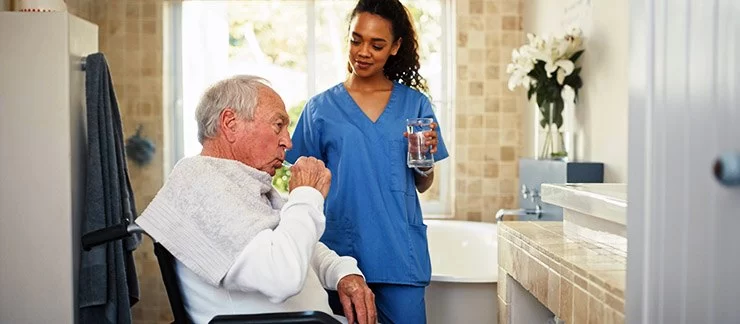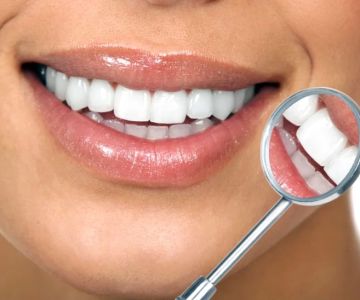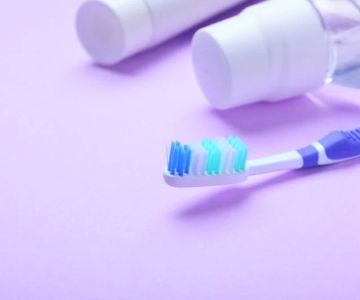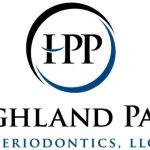
When Senior Residents Ask “Can I Charge for Oral Hygiene Care?”
Imagine the scene at a long-term care facility in Ohio. One resident, Mrs. Ramirez, asks her family visiting her: “Why am I being asked to pay a separate fee for the mouth care routine?” Meanwhile the administrator explains that the facility has added a “dental hygiene assist” service to help residents with brushing, flossing or denture cleaning once daily. This story sets the stage. The question is real: in U.S. senior care settings, can a facility legitimately charge residents for oral hygiene care?
Understanding the Regulatory Framework
Federal rules for nursing homes
Facilities certified under Centers for Medicare & Medicaid Services (CMS) must provide comprehensive care for residents — including oral health assessment and facilitating access to dental services. For example, the regulation 42 C.F.R. § 483.20 requires the facility to ensure that each resident receives dental services needed to maintain oral health, either through the facility or via outside providers. :contentReference[oaicite:1]{index=1}
Additionally, a fact sheet noted that nursing homes must “obtain routine and emergency dental services from an outside resource to meet resident needs.” :contentReference[oaicite:2]{index=2}
State-by-state variability and funding issues
Although federal rules set minimum requirements, states may impose additional obligations and funding structures. Some services are included under state Medicaid plans, while others may not. A study observed that nursing home residents often struggle to obtain full oral health services, partly because of funding or service logistics. :contentReference[oaicite:3]{index=3}
When is oral hygiene care “covered” vs “extra”?
Good oral hygiene care (brushing, denture cleaning, basic daily maintenance) is closely tied to the standard of care in long-term settings. When a resident’s care plan includes assistance with mouth care because of limited mobility or cognition, the facility must include that in the routine services. Charging separately may raise concerns if it is essentially a required part of daily care.
On the other hand, if the facility offers an upgraded, optional oral hygiene service (for example, specialized cleaning beyond standard mouth-care assistance, cosmetic denture polishing, or subscription-style hygiene packages) then a fee might be arguable—but it must be clearly optional and documented.
Key Questions to Ask Before Charging Residents
1. Does the resident’s care plan include oral hygiene assistance?
If the resident is unable to brush their teeth or clean their dentures without help, the care plan should state this need. The facility is obligated to meet this need under regulation. Charging an extra fee for what is essentially assistance required by the care plan may be inappropriate.
2. Is the service optional versus required?
If the additional service is truly optional (e.g., a premium denture cleaning every month, or aesthetic polishing beyond medical necessity), then it may be structured as a chargeable service — provided residents are fully informed, free to decline, and the alternative (basic care) is still offered at no extra cost.
3. Has the fee arrangement been clearly disclosed and agreed to upfront?
Transparency is critical: residents or their authorized representative must understand what the fee covers, whether it is optional, how often it’s billed, and what happens if they decline. Without clear disclosure, the facility could face complaints or regulatory risks.
4. Does the charge comply with state Medicaid or Medicare-certified facility billing rules?
If the facility is Medicaid-certified, then the resident’s Medicaid eligibility may impact whether additional services can be billed separately. For example, the National Council on Aging explains that for Medicaid-certified nursing homes, certain services (personal hygiene supplies, daily living assistance) are covered under the basic rate, and extra charges must be limited to optional services. :contentReference[oaicite:5]{index=5}
Real-Life Example: The Case of Mrs. Davis
Consider Mrs. Davis, a resident in a skilled nursing facility in Florida. She has Alzheimer’s disease and cannot manage her dentures or perform mouth cleaning without assistance. Her care plan includes “twice-daily denture cleaning and teeth brushing assistance by staff.” The facility attempted to charge her an extra $15/month for a “premium oral hygiene package” which included a flavored mouthwash and denture polishing. Her family raised concerns: they argued the base service (routine cleaning) already includes mouth care assistance, so charging extra for what seemed basic was problematic.
After discussion, the facility reviewed the billing and clarified: the “premium package” was optional, and automatic enrollment required an “opt-in” signature. The facility then adjusted its billing process so that only those residents who explicitly chose the upgraded service would incur the fee, and all other residents continued to receive the base required mouth-care assistance at no extra charge.
This situation shows how careful facilities must be in distinguishing required care from optional services, and how families must be aware and ask good questions.
Best Practices for Facilities and Families
Best practices for facilities
- Clearly specify what mouth-care assistance is included in the basic rate—and ensure care plans reflect need.
- If offering an upgraded or optional oral hygiene service, prepare a clear written agreement, opt-in consent, transparent pricing, and documentation that the resident understands the choice.
- Keep documentation showing that basic oral hygiene care is provided to all residents who need it under regulation, without hidden extra charge.
- Monitor state Medicaid/Medicare guidance and ensure the extra service does not conflict with covered services. Some states may interpret required mouth-care assistance as part of the facility’s standard obligation.
Best practices for families and residents
- Ask: “What oral hygiene services are included in the resident daily rate or care plan?”
- Read the care plan: does it mention assistance with brushing, denture cleaning, or mouth-care supervision? If yes, that assistance should not incur a surprise fee.
- When offered an upgraded hygiene package, ask: “Is this optional?”, “What’s included?”, “Can I decline and still get the basic care?”
- Keep records of charges, and ask for itemised statements if extra fees appear. As one family shared: > “One person told me the nursing home was taking money out of that $50 stipend for … toothpaste etc. … I would check with Medicaid about the rules.” :contentReference[oaicite:6]{index=6}
- If the resident is Medicaid-eligible, verify whether the state has guidance on personal needs accounts or incidental fees, and which services are included under the facility’s rate.
Why Mouth Care Matters for Health and Why Billing Issues Arise
Good oral hygiene isn’t just about clean teeth and fresh breath — especially in long-term care. Poor mouth care in residents is linked to higher rates of pneumonia, poor nutrition (due to pain or inability to chew), and general systemic health impacts. A national review found that despite regulatory requirements, many nursing homes struggle to provide adequate oral hygiene, citing workforce gaps, training and logistics. :contentReference[oaicite:7]{index=7}
Because of these challenges, some facilities look for ways to offset the cost of additional hygiene support (staff time, special supplies, denture maintenance). That may prompt them to consider billing residents for enhanced services — but this must be structured carefully to comply with law and ethical standards.
What to Do If You Think You Are Being Charged Improperly
If you or a loved one is in a facility and you suspect oral hygiene assistance is being charged when it should be part of standard care, here are steps:
- Review the resident’s care plan and facility contract: check what services are included in the basic rate and mouth-care assistance is expected.
- Ask for an itemised statement of charges: what is the fee for, how often, is the resident required to pay?
- Contact your state’s long-term care ombudsman or regulatory agency: they can clarify resident rights, what services must be included in the basic rate versus optional.
- Discuss with the facility administrator: ask for an explanation of the fee, documentation if it is optional, and whether the resident can decline and still receive the standard assistance.
- If applicable, check with the resident’s Medicaid or Medicare coverage and state guidance on what is covered in nursing home daily rate.
Final Reflections
Charging residents for oral hygiene care is a nuanced issue in U.S. long-term care settings. It hinges on whether the service is part of standard required assistance (which should be included) or an optional upgrade (which may be chargeable). For care providers, transparency and documentation are key. For residents and families, asking questions, reviewing plans and understanding what is included matters. For expert guidance and tailored solutions around oral hygiene services, you can visit Family Dentistry Online for the best service recommendations.







 Peachtree Smile Center4.0 (228 review)
Peachtree Smile Center4.0 (228 review) Ichimura Dave DDS0.0 (0 review)
Ichimura Dave DDS0.0 (0 review) Lifetime Family Dental PLLC0.0 (0 review)
Lifetime Family Dental PLLC0.0 (0 review) Sundance Endodontics5.0 (254 review)
Sundance Endodontics5.0 (254 review) Family Dentistry of Lakewood4.0 (321 review)
Family Dentistry of Lakewood4.0 (321 review) Highland Park Periodontics5.0 (5 review)
Highland Park Periodontics5.0 (5 review) The Importance of Oral Health Education During Pregnancy for a Healthy Pregnancy
The Importance of Oral Health Education During Pregnancy for a Healthy Pregnancy Best Tips for Brushing Your Teeth Properly for Healthy Gums: Essential Techniques for Oral Health
Best Tips for Brushing Your Teeth Properly for Healthy Gums: Essential Techniques for Oral Health Why Skipping Dental Checkups Can Lead to Bigger Oral Health Problems
Why Skipping Dental Checkups Can Lead to Bigger Oral Health Problems Advantages of Porcelain Dental Restorations
Advantages of Porcelain Dental Restorations How Can Diabetes Cause Tooth and Gum Problems? Preventing and Managing Oral Health Issues
How Can Diabetes Cause Tooth and Gum Problems? Preventing and Managing Oral Health Issues Healthy Habits for Promoting Good Oral Health and Hygiene: Tips for a Healthy Smile
Healthy Habits for Promoting Good Oral Health and Hygiene: Tips for a Healthy Smile